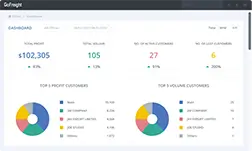What is LCL?
Less than Container Load (LCL) is a shipping term used in the freight industry to describe a type of transportation for goods that do not require the full space of a standard container. This option allows multiple shippers to share container space, making it a cost-effective solution for transporting smaller volumes of cargo. LCL shipments are consolidated at a Container Freight Station (CFS) before being loaded onto a vessel and then de-consolidated at the destination CFS for delivery.
LCL is particularly beneficial for businesses that need to manage their inventory efficiently, avoiding the higher costs associated with booking a full container when their cargo volume doesn’t justify it. By opting for LCL, shippers can still enjoy the advantages of sea freight, such as lower shipping rates compared to air freight, without the need for large, bulk shipments.
Key Benefits of LCL Shipping
- Cost Efficiency: Pay only for the space your cargo occupies, not the entire container.
- Flexibility: Offers more flexibility in managing smaller shipments, ideal for businesses with less predictable supply chains.
- Consolidation Opportunities: Combines shipments with others to fill a container, reducing transportation costs and environmental impact.
Considerations for LCL Shipping
- Transit Time: LCL shipments may experience longer transit times due to the consolidation and de-consolidation process.
- Handling: With multiple handling points, there’s a slightly higher risk of damage or loss. It’s essential to ensure that goods are well-packed and insured.
Related Freight Glossary Terms
- Container Freight Station (CFS)
- Consolidation
Understanding these terms and how they relate to LCL can provide a clearer insight into the logistics and decisions behind freight transportation. Whether you’re a new shipper learning the ropes or a seasoned veteran optimizing your freight operations, grasping the nuances of LCL and related concepts is crucial in navigating the complexities of global trade efficiently.

